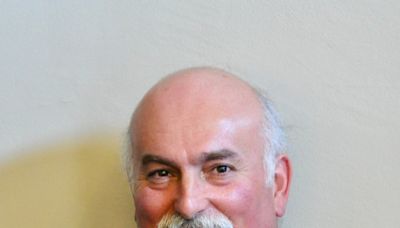Search results
Sir Isaac Newton FRS (25 December 1642 – 20 March 1726/27) was an English polymath active as a mathematician, physicist, astronomer, alchemist, theologian, and author who was described in his time as a natural philosopher. He was a key figure in the Scientific Revolution and the Enlightenment that followed.
Jun 17, 2024 · Isaac Newton, the brilliant physicist and mathematician, revolutionized our understanding of the universe with his laws of motion and universal gravitation, forever changing the course of scientific inquiry.
Sir Isaac Newton was born on 4th January 1643 in a small village of England called Woolsthorpe-by-Colsterworth. He was an English physicist and mathematician, and one of the important thinkers in the Scientific Revolution.
Mar 10, 2015 · Sir Isaac Newton (1643-1727) was an English mathematician and physicist who developed influential theories on light, calculus and celestial mechanics.
Sir Isaac Newton, (born Jan. 4, 1643, Woolsthorpe, Lincolnshire, Eng.—died March 31, 1727, London), English physicist and mathematician. The son of a yeoman, he was raised by his grandmother. He was educated at Cambridge University (1661–65), where he discovered the work of René Descartes.
Sir Isaac Newton (1642-1727) was one of the world's most famous and influential thinkers. He founded the fields of classical mechanics, optics and calculus, among other contributions to algebra and thermodynamics.
Dec 19, 2007 · Isaac Newton. First published Wed Dec 19, 2007. Isaac Newton (1642–1727) is best known for having invented the calculus in the mid to late 1660s (most of a decade before Leibniz did so independently, and ultimately more influentially) and for having formulated the theory of universal gravity — the latter in his Principia, the single most ...
Timeline of important events in the life of English physicist and mathematician Isaac Newton who was the culminating figure of the Scientific Revolution of the 17th century. In mechanics, his three laws of motion, the basic principles of modern physics, resulted in the formulation of the law of universal gravitation.
Newton's aim at Cambridge was a law degree. Instruction at Cambridge was dominated by the philosophy of Aristotle but some freedom of study was allowed in the third year of the course. Newton studied the philosophy of Descartes, Gassendi, Hobbes, and in particular Boyle.
Sep 19, 2023 · Isaac Newton (1642-1727) was an English mathematician and physicist widely regarded as the single most important figure in the Scientific Revolution for his three laws of motion and universal law of...


